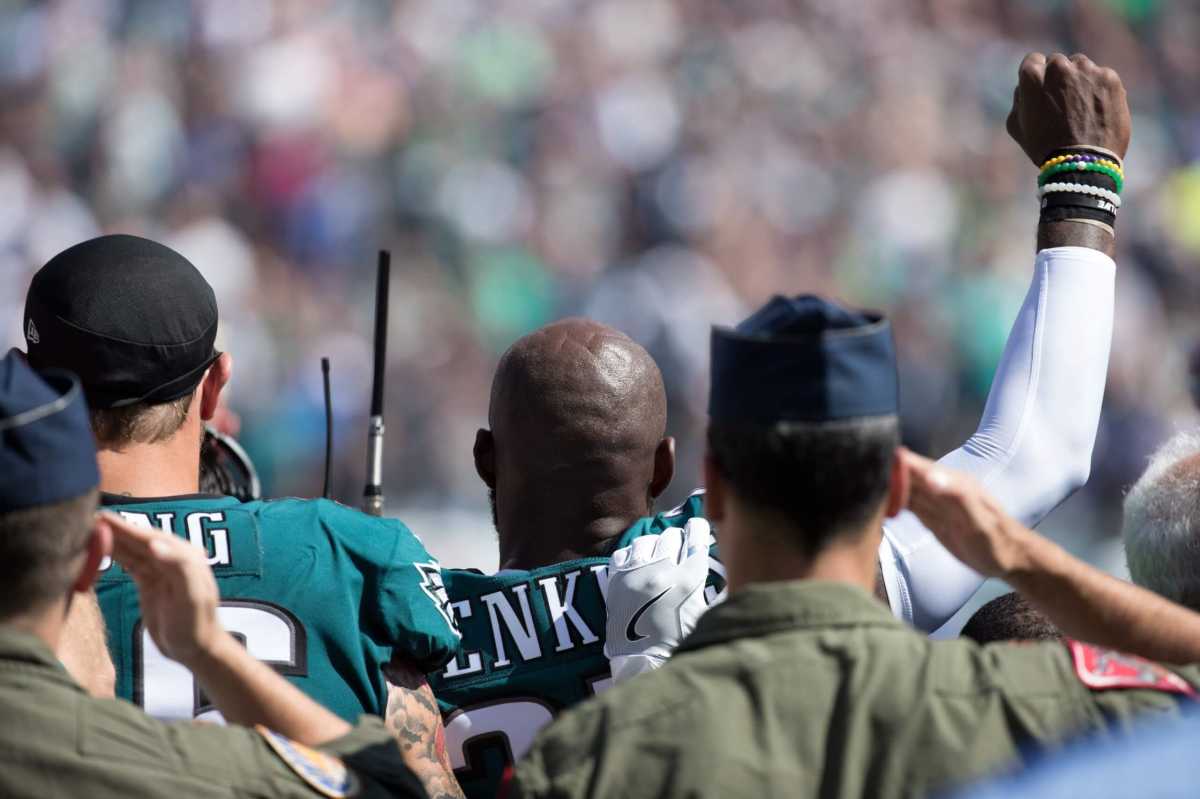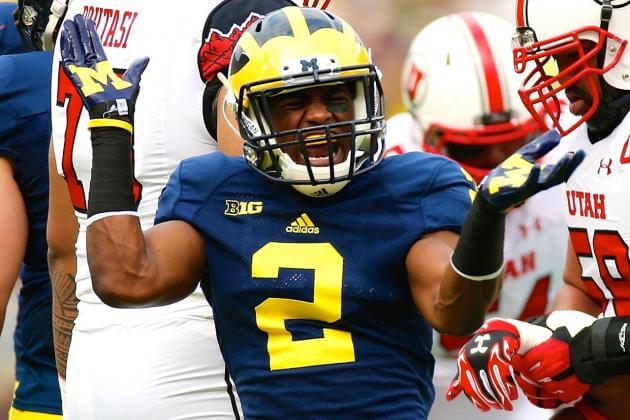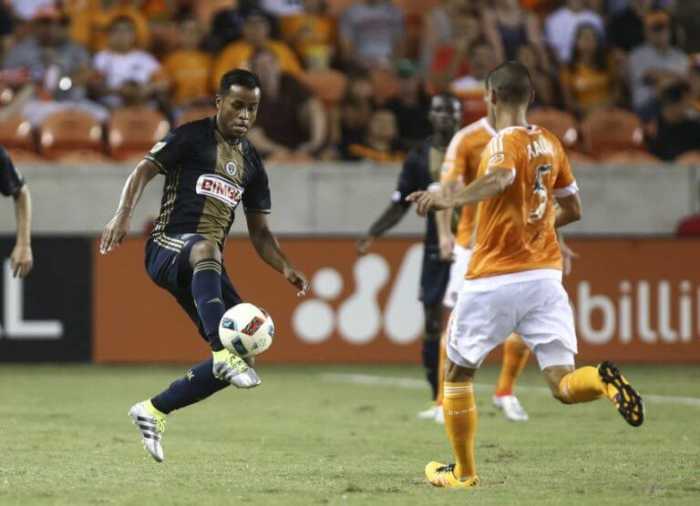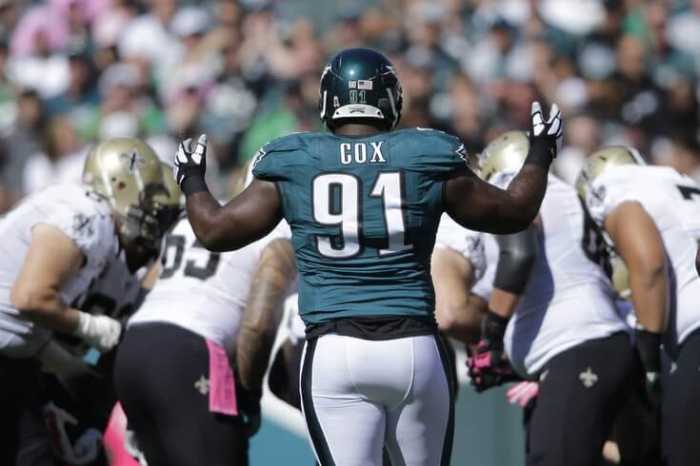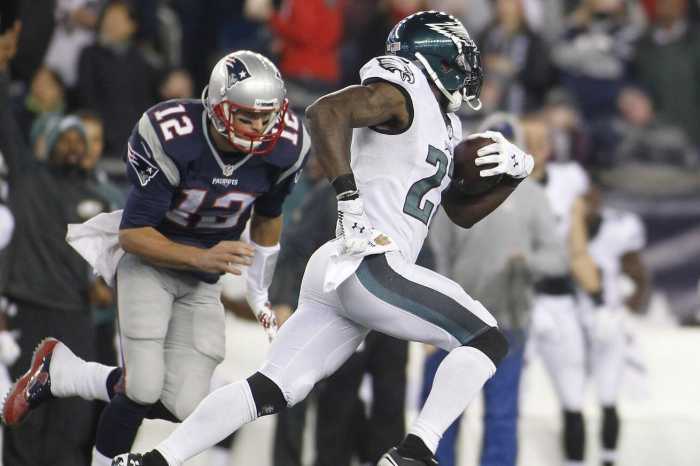“Stick to sports.” That phrase has been used quite a bit recently. Writers, broadcasters and members of the sports media realm have been subject to that three word command for the past few weeks ad nauseum. I can’t begin to explain how many times it been uttered at the hosts of sports radio programs in Philadelphia and across the country, I’d bet. These quips have been directed at the members of sports media because of the cultural phenomena that has taken the United States by storm and spread like a brush fire over the grass of a drought-stricken city: athletes kneeling while the National Anthem is being played at sporting events.
Some members of the media have remained silent on the matter. I have until this moment. Of course I had my opinions, but I could not, in good conscience, divulge those opinions until I had adequate information on the matter, spoke to both sides of the equation, and deciphered my own thoughts into words.
Some more have very publicly expressed their views, and have been reprimanded by those with a counterpoint. It seems like an uphill battle for whatever side you’re on.
But it’s time for me to pen, or type, my thoughts into concrete, examinable words. Let me start with a little bit of a background. I have family members who disagree with me. I have friends on both sides of this spectrum. I have future in-laws who are former military, and my Christmas presents may be in jeopardy with this post. So I’m opening myself up to this one wholeheartedly because I cannot stand idle any longer.
First things first: I am white. That shouldn’t matter in 2017, but then again, if it didn’t matter, we wouldn’t be having this conversation in the first place. So we stride on. I am a white man who was raised in a middle class home with two great parents. While my parents eventually split when I was a teenager and I was admittedly shaken by this, I continually had the utmost support of both of them in every endeavor I attempted I became the man I am today with their support. We lived in the suburbs of Philadelphia my entire life, and I had everything I ever needed. If my parents ever struggled, I never knew it. I thank them every day of my life for their help in getting me to where I am today. I mention this because it allows a perspective into my viewpoints, and how I am able to wrap my head around everything.
I am a white male. I am a white male that never once walked out of my house in the morning to go to school or work fearing for me life. I never felt that if I were to get pulled over for a traffic violation that it could be the last day of my life. I was never a minority in the United States. I was never racially profiled. I never lost a job because I was white. I was never treated as a lesser citizen because of the color of my skin.
But so many of our African Americans neighbors, co-workers and friends have been looked down on. They’ve been beaten, shot, killed. They have to get up each day and walk out into a world that is racist.
I’ve never faced those aforementioned struggles. So I cannot understand the protests that are taking place. And when I say understand, I simply mean comprehend. I am not insinuating in any way that they are unacceptable. Because they’re not.
No, they are, in totality, thought provoking and eye opening.
Colin Kaepernick knelt down for the playing of the National Anthem last season, and the world took notice. Now, Kaepernick is out of a job. Is that because of his talent, or lack thereof, or his off the field beliefs? That’s for you to be the judge, but not something we’ll expressly get into here. But the important part is that the world took notice. So other players began joining in and replacing Kaepernick on the sidelines of NFL games this season. And now the world is in an uproar. And it’s an uproar that won’t be silenced any time soon, just as the protests won’t end quickly, either. Slavery was outlawed in the 1850’s. Civil rights were fought for in the 1960’s. But it hasn’t changed the outlook in many Americans’ lives. The African American community is still being racially profiled. Racism has become so ingrained in American minds that the view from our backyard has become blurred. The strained view has led many to believe that racism is no longer an issue. But do not get this skewed. Racism is real. It is.
What I’d like to do is debunk some commonly heard arguments as to why the protests or unacceptable to many.
For those that are calling for the protestors’ heads because it is disrespectful to the flag of the United States, and those that have served, continue to serve, and especially those who paid the ultimate sacrifice to keep the country free, you have good intentions, but I believe you’re misguided. You are correct, it is our duty to respect the flag of this nation. However, I believe that the protests are about so much more than the flag itself. The underlying message is not one of disrespecting the soldiers who fight for your, my and the players who are kneeling’s freedoms to do just that. Instead, it is one to bring about awareness and understanding to the racial injustices that are going on in this country. In fact, Eagles safety Malcolm Jenkins appeared in an interview with CNN’s Anderson Cooper this week and echoed just that. “This is not about them, it’s not about the flag at all, this is us, as concerned citizens, trying to play our role in a bigger conversation about race in America, a bigger conversation about our criminal justice system, and our law enforcement. And this is not an indictment against law enforcement or police. We’re not anti-police. Many of us have worked hand-in-hand with law enforcement to figure out ways to really move us forward in a better direction.”
While it certainly is a direct message to President Donald Trump, who seemingly attacked the players, calling them “sons of b—–, it is not an indictment on the country itself. It is a call for help from the African American community.
I believe in rising and facing the flag, and singing along with the words of the Francis Scott Key song because I feel that is my best available ability to show respect and honor the great men and women that have proudly served this country. But that is my right, just as it is the players’ right to continue to kneel to raise awareness.
The flag wouldn’t be an issue if it weren’t for the governmental payoff that the NFL took beginning in 2009. Prior to that year, no grand spectacle was made; no flag 100-yard long flag was unfurled at every game. Some games, special games, the flag was stretched across the field to salute prior to kickoff. Beginning in 2011 and stretching through the 2014 season, the NFL received $5.4 million from the United States Department of Defense in order to display the flag at every game and have the players stand along the sidelines to show patriotism. From 2013-2015, the league also accepted $6.7 million from the National Guard for these pregame ceremonies.
To finalize this subheading of military respect/disrespect, please speak to those who have served. Many have very strong opinions on the matter, but a vast majority have openly claimed one, resounding message. Despite their belief in standing or not, and most veterans still rise at attention and salute the flag throughout the duration of the song, they echo that these players have a Constitutional freedom to do exactly what they are doing. Many claim that these protests are an exact reason as to why they signed up to serve in the first place, and why they put their lives on the line every day.
Next let’s get to the argument that these players shouldn’t be expressing themselves at their place of work.
Many have become outraged that these athletes are taking their political and social stances to their place of work. Many more have said that, had it been them that did that at their occupation, they would have been reprimanded or fired. That may very well be the case because that may be the protocol of your office, site, or company building. Your boss, or your bosses boss, may supersede you, and give you expressly written codes of conduct that say that, while you are at work, you represent your company, and may, in no way, direct your political or social beliefs at another member of the office. Your boss has every right to do exactly this, just as the NFL owners do. But they’ve chosen not to. And that’s why these players are given the pedestal to openly protest. If an owner said to his players that any athlete that did not stand for the duration of the National Anthem would be subject to immediate termination, then those who continued to protest would be doing so at the risk of their jobs. But again, they’re not given this ultimatum. Therefore, their bosses, the ones who sign their paychecks, to continue their stand, have given them the express, nonverbal go-ahead. And many of the owners, including Eagles’ owner Jeffrey Lurie, have stood, arms linked, with their players.
Yet another fight calling for an end to the protests is the status of those players kneeling.
“What could you possibly know about injustice in America? You’re a multimillionaire who gets to play a sport for a living.” I’ve heard that one a million times. Almost as many times as I’ve been told to stick to sports and keep these two from colliding. Those against the protest are angry that these millionaire athletes are using their social status to force their ideals down their throats.
But think about this for a moment. Humor me, even if you still think I’m wrong. These athletes are using their social status to portray their message, yes. But doesn’t it make sense for them to be the ones who are doing it? How many of you know who the aforementioned Malcolm Jenkins is? I bet many of you do, considering this is a Philadelphia sports site. Now how many of you know whom Elmer Williams is? Far less I’d suppose. I didn’t know who he was either. I legitimately Google searched “prominent social justice members” just to prove a point. His name popped up. He was a 20 year armed forced veteran who died a month ago at the age of 81. After his time in the military, he taught race relations courses at the Webb Air Force Base.
The point I’m trying to make here, even if it is a bit long winded, is that Malcolm Jenkins and the rest of the NFL players are perfect conduits for this exact situation because you do, in fact, know who they are and you know what they look like. You’re more likely to stop what you’re doing if you see Peyton Manning come on your TV to do a Papa John’s commercial than you are the grounds crew member who they’ve put in a recent ad, correct? It’s the same premise.
“And as a black man in America with a platform…” Jenkins continued to Anderson Cooper. He recognize that they are the outlets, they have the platform, and they’re using it to raise awareness.
Finally, we can tally up one final “stick to sports”, as many are against the protests because of when and where they are taking place.
This select group is claiming that they don’t want their Sunday traditions watered down by these protests. They want to watch football, relax, and separate themselves from the issues of the real world. But why is Sunday such a sacred, unrelatable day? Why does “your Sunday” and “your football” have to unobstructed so much that this is an unacceptable act? Why can’t your kids be exposed to this form of protest? Because it doesn’t align with your beliefs? Or you don’t care and truly want to turn a blind eye to the nation’s problems? Those seem to be the only two logical explanations.
The time and place argument is a stale one, at best. Many quip that the players should not kneel while the pregame National Anthem is playing, as it is disrespectful. In turn, the Pittsburgh Steelers decide not to leave the locker room at all, and remain as a unit until after the anthem has finished playing. But now that’s unacceptable as well because they’ve completely lost touch with their fellow countrymen. It’s a hypocritcal narrative that is riding the inside loop of the merry-go-round, circling round and round, but never actually achieving movement.
These athletes are not diluting the product on the field. When the anthem is over, and the game begins, you’re watching the same football players take the field each week to compete. If you didn’t tune in as the anthem was playing, or you didn’t have the internet, or all media outlets, because, let’s face it, it is impossible to avoid news completely nowadays, you would have no idea that these players were protesting anything. If this were the 1960’s and African American players were protesting by kneeling in other cities, especially those across the country, your local paper or the nightly news might be your only source to get this information.
So don’t watch the product if you must. If you feel so obligated, turn away from the NFL, burn your jerseys and tickets and never watch another game as long as you shall live. If that’s how you’re rationalizing this serious problem, that’s fine. The ratings could take a hit, but could is the operative word. Because for every one non-watcher, there will still be tens or hundreds of watchers.
I hope this helped you understand my perspective on the matter, and made you realize that those utterances of “stick to sports” have become cliché and extraneous because sports and politics, sports and social justice issues, sports and life, will henceforth and forever, be intertwined.
Mandatory Credit: Bill Streicher-USA TODAY Sports

